South Africa had a superb round-robin stage of the Cricket World Cup. The Proteas won seven out of nine matches played. Their only defeats were an anomalous loss to Netherlands and a trouncing by hosts India.
The Proteas finished second on the table, behind undefeated India. They now have a date with destiny on Thursday against the familiar foes of Australia.
It’s familiar territory for South Africa to enter the knockout stage of a Cricket World Cup as favourites in the encounter but to then fall apart when it matters most, whether through bad luck, miscalculations or not holding their nerve. It’s the reason the Proteas are commonly known as “chokers” in World Cups.
At this edition, Temba Bavuma and his men have an opportunity to atone for the failings of the national cricket teams that came before them.
Nevertheless, Daily Maverick looked at four Cricket World Cup knockout matches where the Proteas fell just short:
South Africa v England 1992
South Africa’s first taste of Cricket World Cup heartbreak came in their first appearance in the tournament — after readmission in 1992.
The Proteas entered the tournament as an unknown entirety and weren’t favourites for the title, like they have been in several of the tournaments to follow.
Despite this, South Africa qualified comfortably for the semi-finals after winning five of their eight round-robin matches.
They met England in the semi-final at the Sydney Cricket Ground (SCG) in Australia and after 87.5 overs of cricket, South Africa looked on track to seal a historic final appearance, needing 22 runs off 13 overs.
With Brian McMillan and David Richardson at the crease as well as four wickets in the bag, the chase looked more than probable with momentum on the side of South Africa after a blitz 38-ball 43 from Jonty Rhodes.
Unfortunately, rain interrupted play, as it had done in two other matches already in the tournament and the players were called off.
When the players returned to the field, overs had been lost to the rain and because of the ‘Most Productive Overs’ (MPO) method that had been introduced for the first time in the tournament, South Africa suddenly required 21 runs off one ball.
It was a terrible way to lose with even England’s captain, Graham Gooch feeling pity for the international newbies.
“I’d be lying if I didn't think that maybe we should stay on,” Gooch said at the time. “The South Africans must feel very dejected to lose like that and my heart goes out to them.”
It would not be the last time rain would play a role in South Africa’s misfortune.
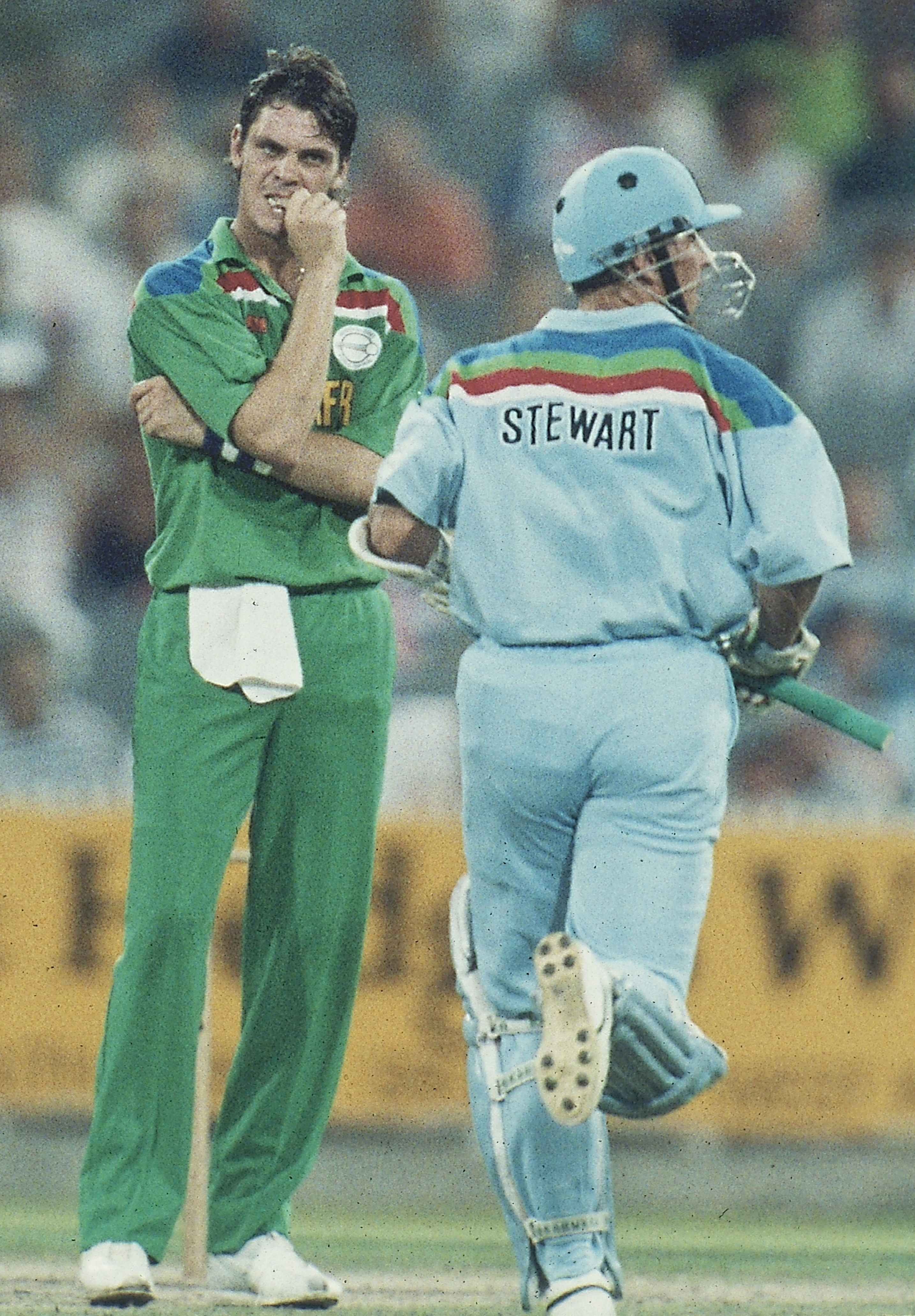 Meyrick Pringle glares at Alec Stewart during the 1992 Cricket World Cup. (Photo: Adrian Murrell/allsport/Gallo Images)
Meyrick Pringle glares at Alec Stewart during the 1992 Cricket World Cup. (Photo: Adrian Murrell/allsport/Gallo Images)
South Africa v Australia 1999
South Africa once again displayed supreme ability in the group stages, losing only once in their five matches — a shock 48-run loss to Zimbabwe, after they had already qualified for the Super Six stage.
From there South Africa qualified for the semi-final after losing only one more further match, this time against a rampant Australian side. It was a tightly fought contest, Australia edging past the Proteas with five wickets but only two balls to spare.
The semi-final clash was against the same opponents. Australia set a respectable 213 to chase.
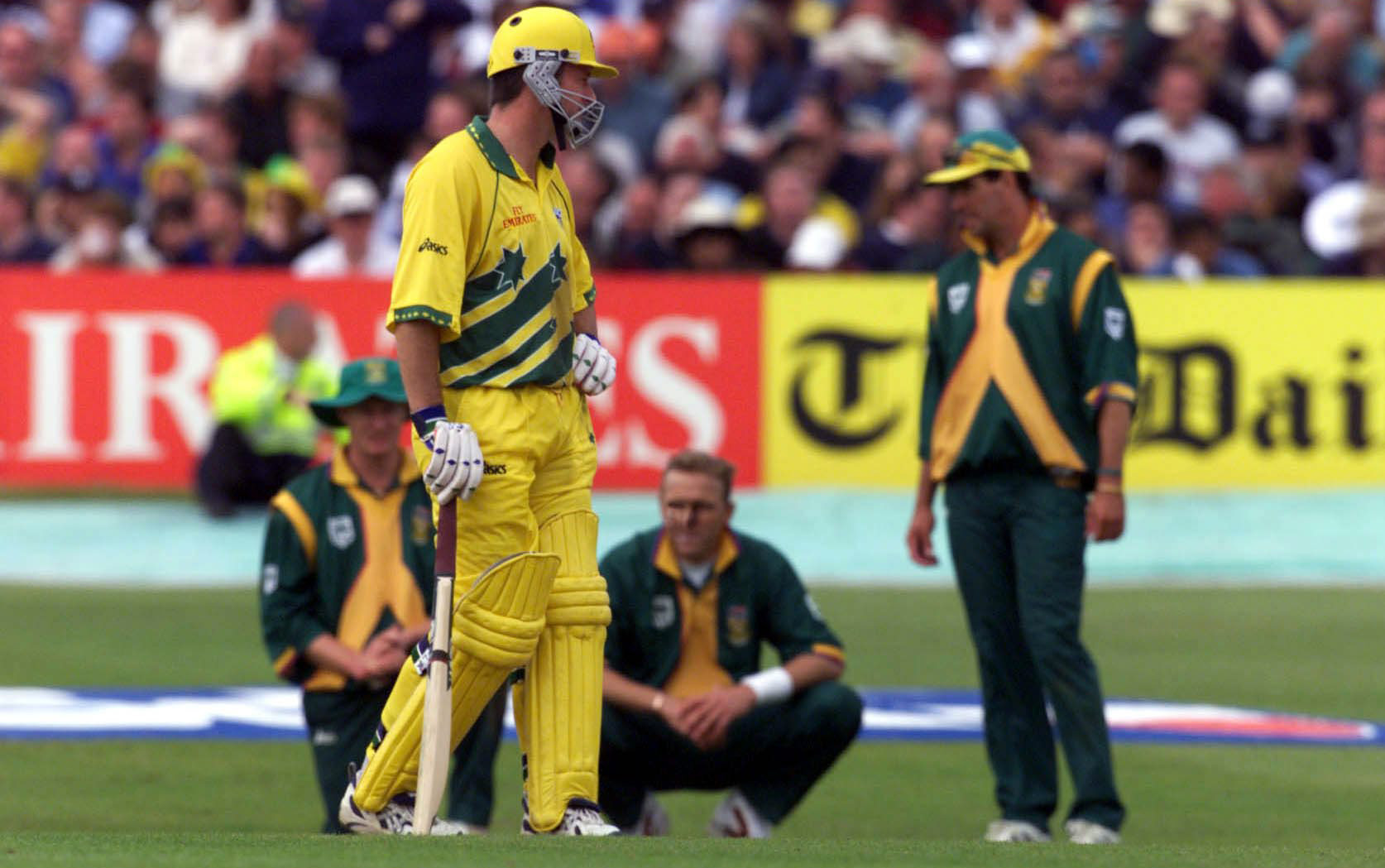 Australia's Steve Waugh with Proteas players gather behind him, during the Cricket World Cup 1999 at Headingley, Leeds. (Photo: Duif du Toit/Gallo Images)
Australia's Steve Waugh with Proteas players gather behind him, during the Cricket World Cup 1999 at Headingley, Leeds. (Photo: Duif du Toit/Gallo Images)
South Africa needed nine runs to win, with one wicket in hand, off the last over bowled by Damien Fleming. Lance Klusener struck back-to-back fours through cover off the opening two deliveries.
The sides were level on the score. The equation was simple. A single to win.
Klusener struck the next ball straight to a fielder and the pressure built as Allan Donald, at the non-striker’s end was nearly run out.
Klusener dug out a yorker on the fourth delivery and scampered through but Donald stayed in his crease as the ball, and Klusener passed by him, before darting off to the other end.
It was too late, as the bat dropped, Donald failed to make it before the bails were dislodged.
Australia progressed through to the final, despite the scores being level, by virtue of beating South Africa four days earlier and finishing higher on the Super Six table by net-run rate.
It was a haunting loss for the Proteas.
South Africa v New Zealand 2011
South Africa, once again, battered their way through the group stages, losing only once — to England — in their six matches to finish top of the tree.
The faced, the less fancied Black Caps, who only just scraped through to the quarter-final stage.
New Zealand batted first and set an uninspiring 221 for eight at the Mirpur Stadium in Bangladesh.
South Africa had the chase under control at 108 for two in the 24th over.
But after Jacques Kallis was dismissed for a team-high 47 off 75 balls, the wheels came off.
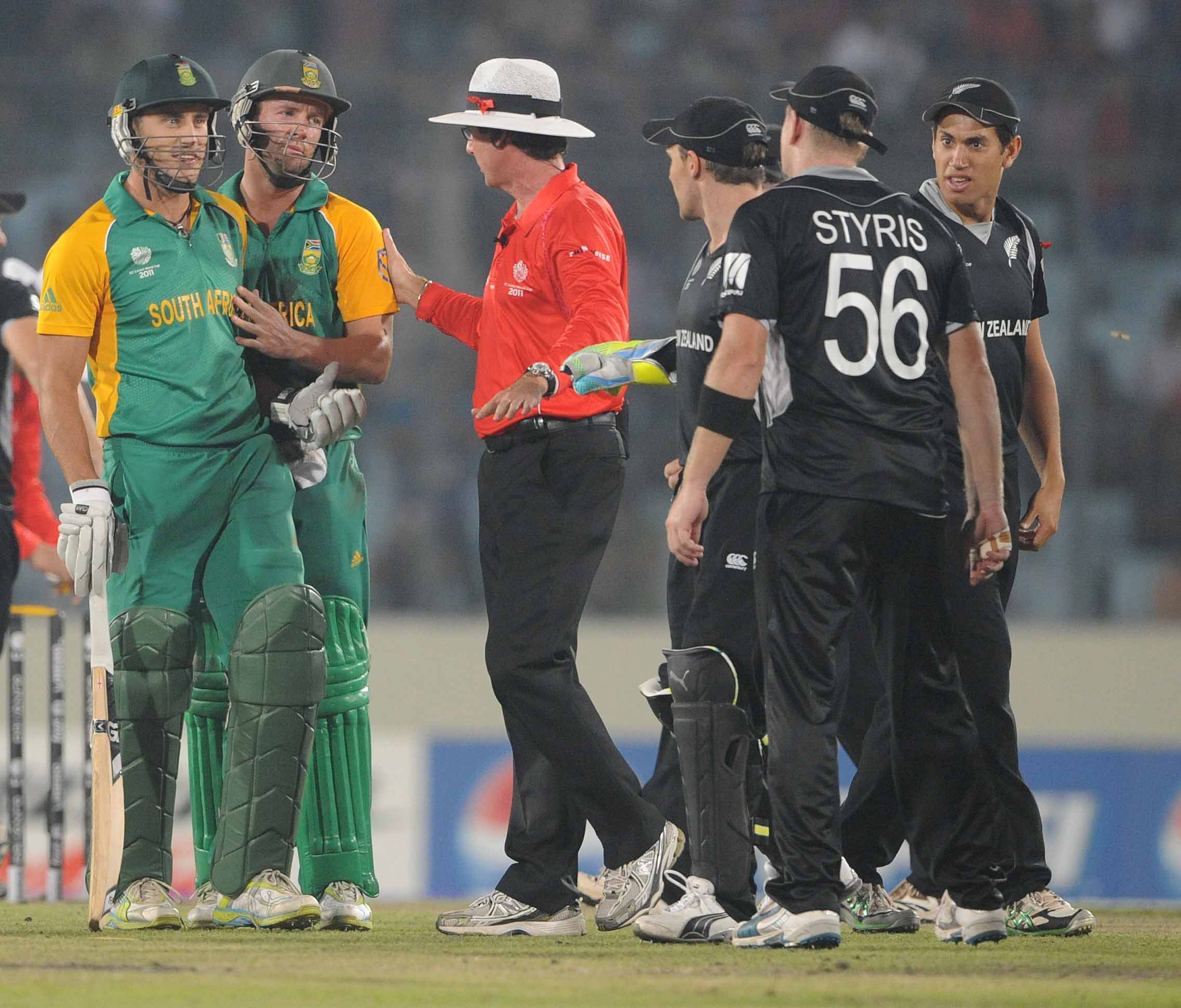 Faf du Plessis of the Proteas and Scott Styris of New Zealand exchange words during the 2011 ICC Cricket World Cup quarter final. (Photo: Photo by Lee Warren / Gallo Images)
Faf du Plessis of the Proteas and Scott Styris of New Zealand exchange words during the 2011 ICC Cricket World Cup quarter final. (Photo: Photo by Lee Warren / Gallo Images)
Faf du Plessis, only a year into his one-day international career, then ran out AB de Villiers.
Read more in Daily Maverick: Cricket World Cup quarter-final: Proteas bomb out against brave Black Caps
New Zealand’s players — including Kyle Mills, who was 12th man on the day — swarmed around Du Plessis and made him aware of the enormity of the calamitous run-out.
The Proteas collapsed under the pressure of the situation and were bundled out for 172 in 43.2 overs — adding only 64 runs for the loss of eight wickets after Kallis’ dismissal.
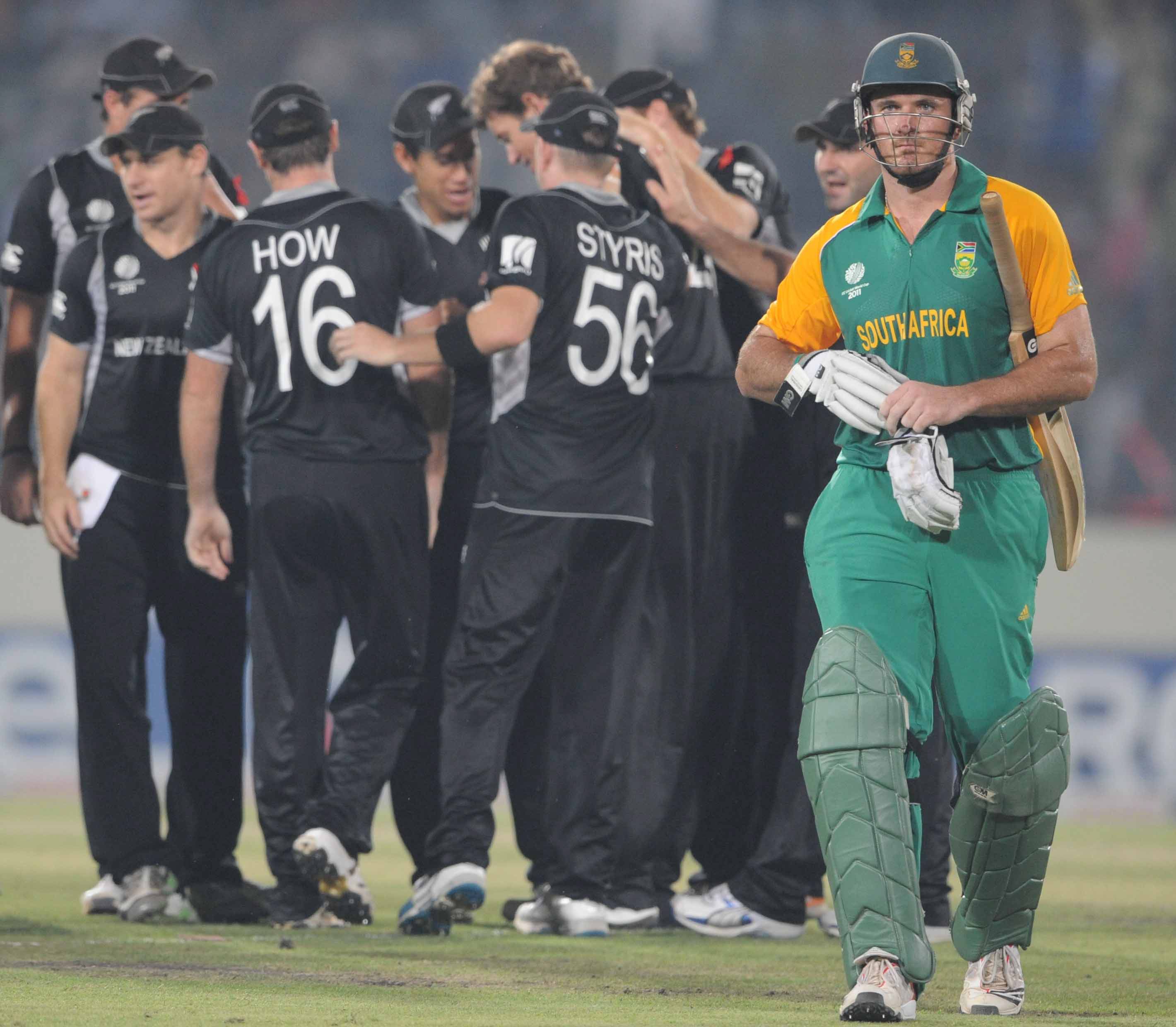 New Zealand celebrate the wicket of Graeme Smith of the Proteas during the ICC Cricket World Cup quarter final in Mirpur, 2011. (Photo: Lee Warren / Gallo Images)
New Zealand celebrate the wicket of Graeme Smith of the Proteas during the ICC Cricket World Cup quarter final in Mirpur, 2011. (Photo: Lee Warren / Gallo Images)
South Africa v New Zealand 2015
The Proteas had assembled arguably their most destructive side yet for the 2o15 edition of the Cricket World Cup. South Africa qualified for the knockout stage of the tournament without too many stresses, finishing second behind India.
They met Sri Lanka at the SCG in the quarterfinal and easily thrashed them by nine wickets thanks to a four-wicket haul by Imran Tahir and a composed 57-ball 78 by Quinton de Kock.
But controversy, which would later be revealed, struck on the eve of their semi-final clash against New Zealand. Then Cricket South Africa CEO Haroon Lorgat nudged the Proteas selection committee into playing Vernon Philander, who was nursing a hamstring injury, over Kyle Abbott, who had been the side’s leading performer at the tournament to date — due to transformation targets.
Nevertheless, South Africa went on to score an above-par 281 in 43 rain-affected overs — the total was later adjusted to 291 due to the Duckworth-Lewis-Stern method — on a small Eden Park Cricket ground in Auckland.
Read more in Daily Maverick: Cricket World Cup: SA bow out in emphatic style
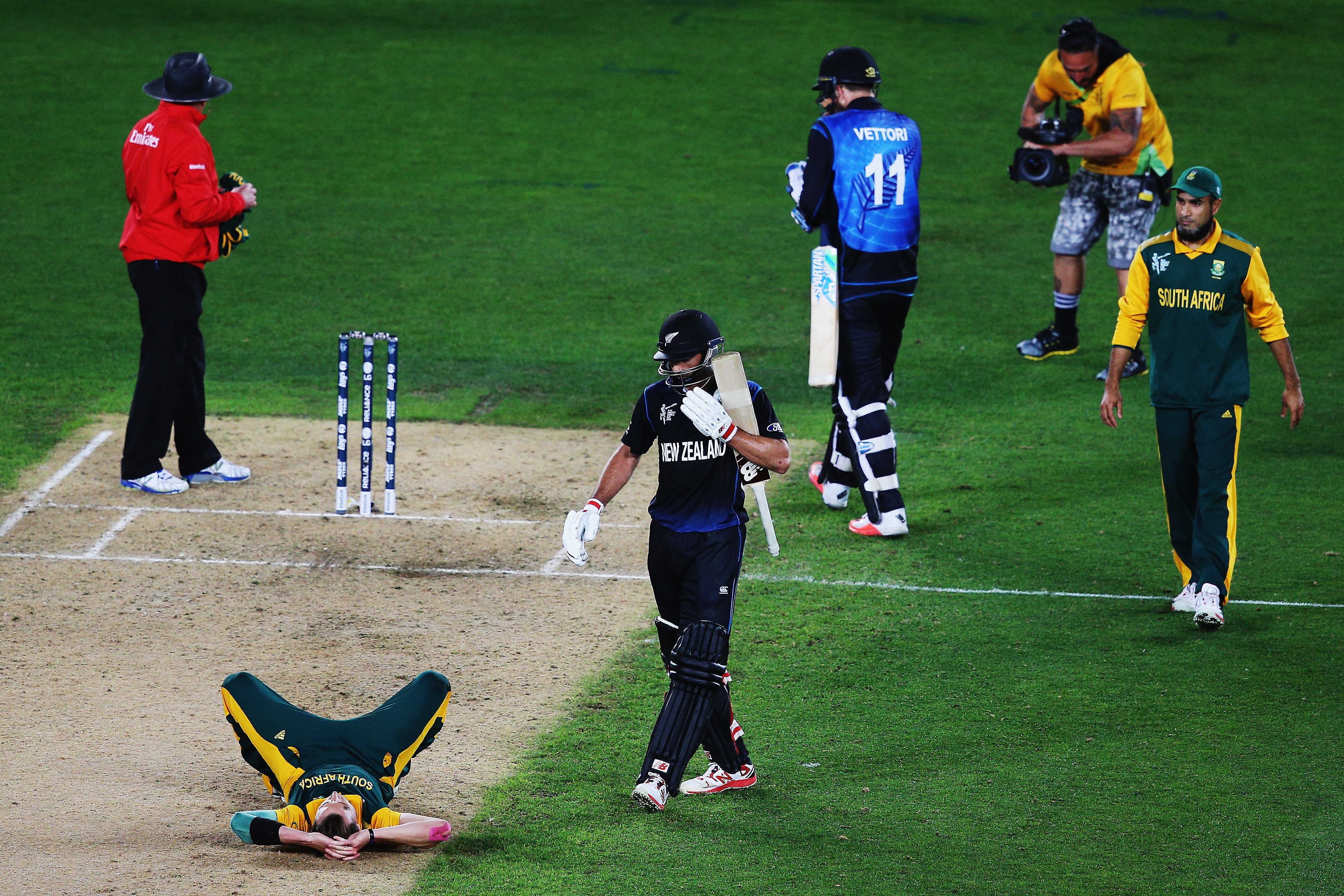 Dale Steyn of South Africa lies on the pitch as Grant Elliott of New Zealand walks over to console him following the 2015 Cricket World Cup semi final. (Photo: Hannah Peters/Getty Images)
Dale Steyn of South Africa lies on the pitch as Grant Elliott of New Zealand walks over to console him following the 2015 Cricket World Cup semi final. (Photo: Hannah Peters/Getty Images)
A blitzkrieg 26-ball 59-run knock by captain Brendon McCullum put the Black Caps on the right track. New Zealand stumbled after that, but South Africa failed to put the hosts to the sword, missing several run out and catching opportunities in the field.
Needing 12 runs to win off the last over, South African-born Grant Elliot struck Dale Steyn for a massive six off the second last ball of the match to clinch the win for his adopted nation.
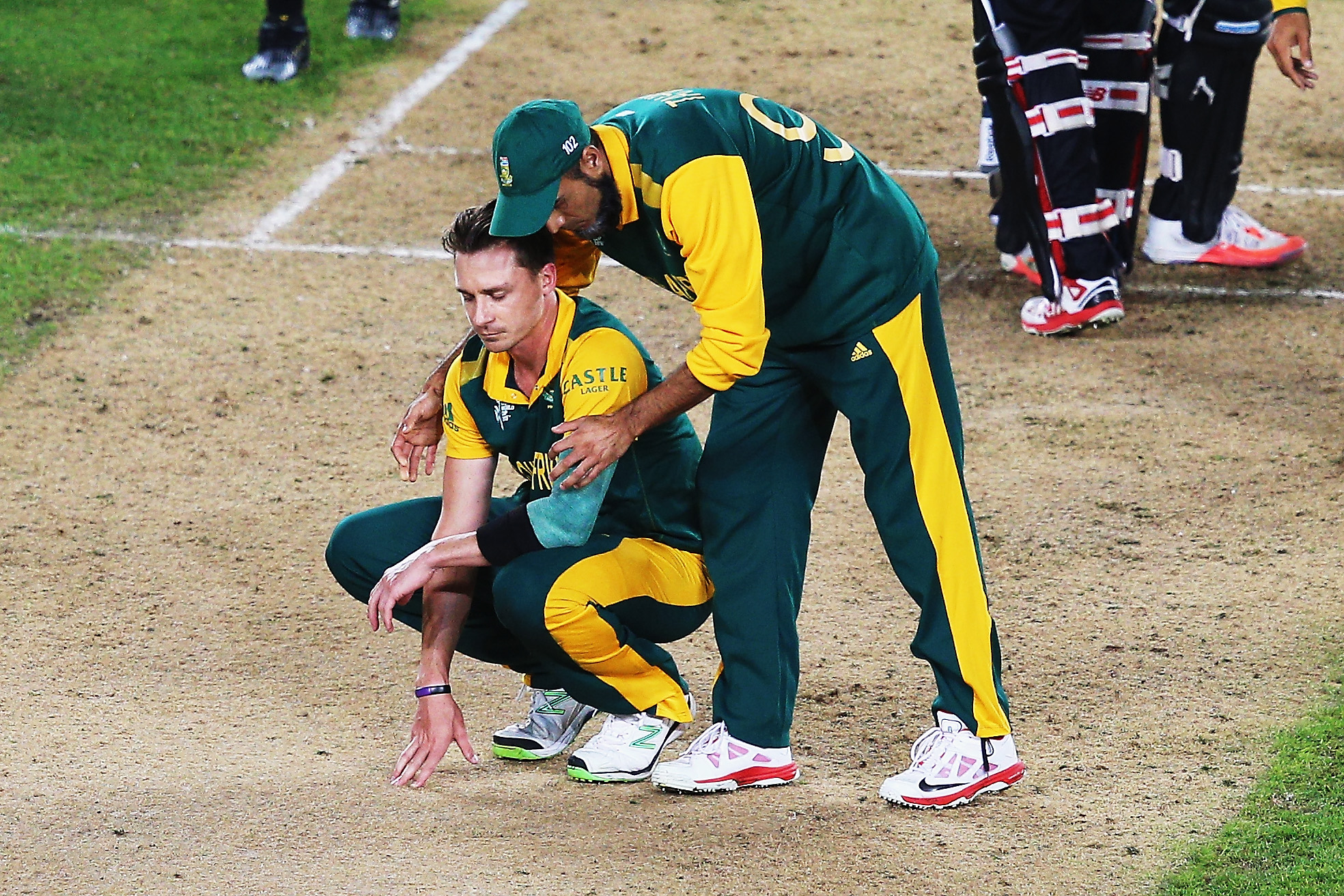 Dale Steyn of South Africa is comforted by Imran Tahir after losing the 2015 Cricket World Cup semi final to New Zealand. (Photo: Hannah Peters/Getty Images)
Dale Steyn of South Africa is comforted by Imran Tahir after losing the 2015 Cricket World Cup semi final to New Zealand. (Photo: Hannah Peters/Getty Images)
In the 2023 edition of the tournament, South Africa have made their own luck so far. They have only won two tosses in nine matches, yet once again finishing close to the apex during the group stages.
The Proteas need their World Cup knockout tournament misfortune to stay away on Thursday in Kolkata if they are to make their first-ever Cricket World Cup final. DM
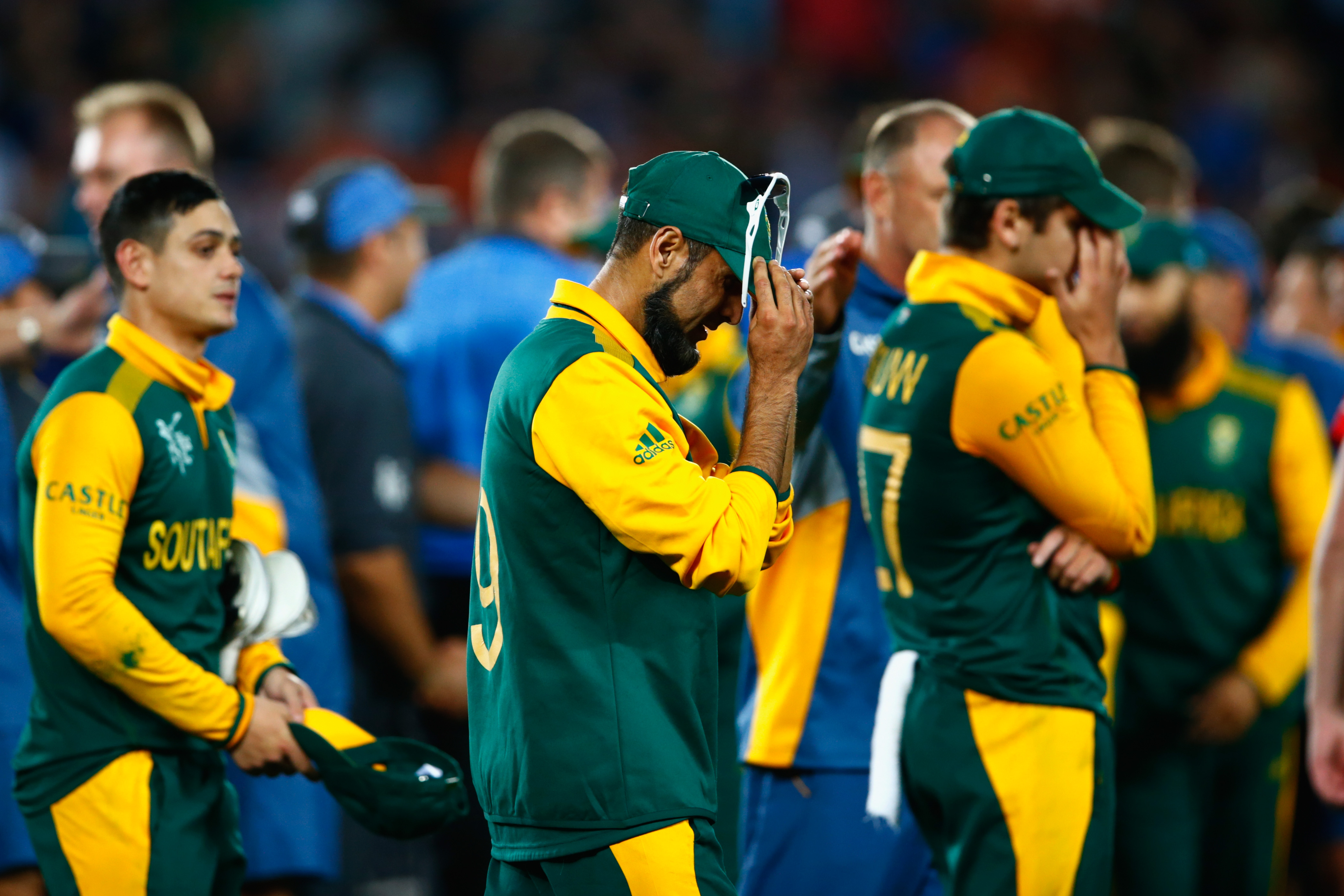 Imran Tahir of South Africa shows his dejection following the 2015 Cricket World Cup semifinal between New Zealand and South Africa at Eden Park on 24 March, 2015 in Auckland, New Zealand. (Photo: Phil Walter/Getty Images)
Imran Tahir of South Africa shows his dejection following the 2015 Cricket World Cup semifinal between New Zealand and South Africa at Eden Park on 24 March, 2015 in Auckland, New Zealand. (Photo: Phil Walter/Getty Images)




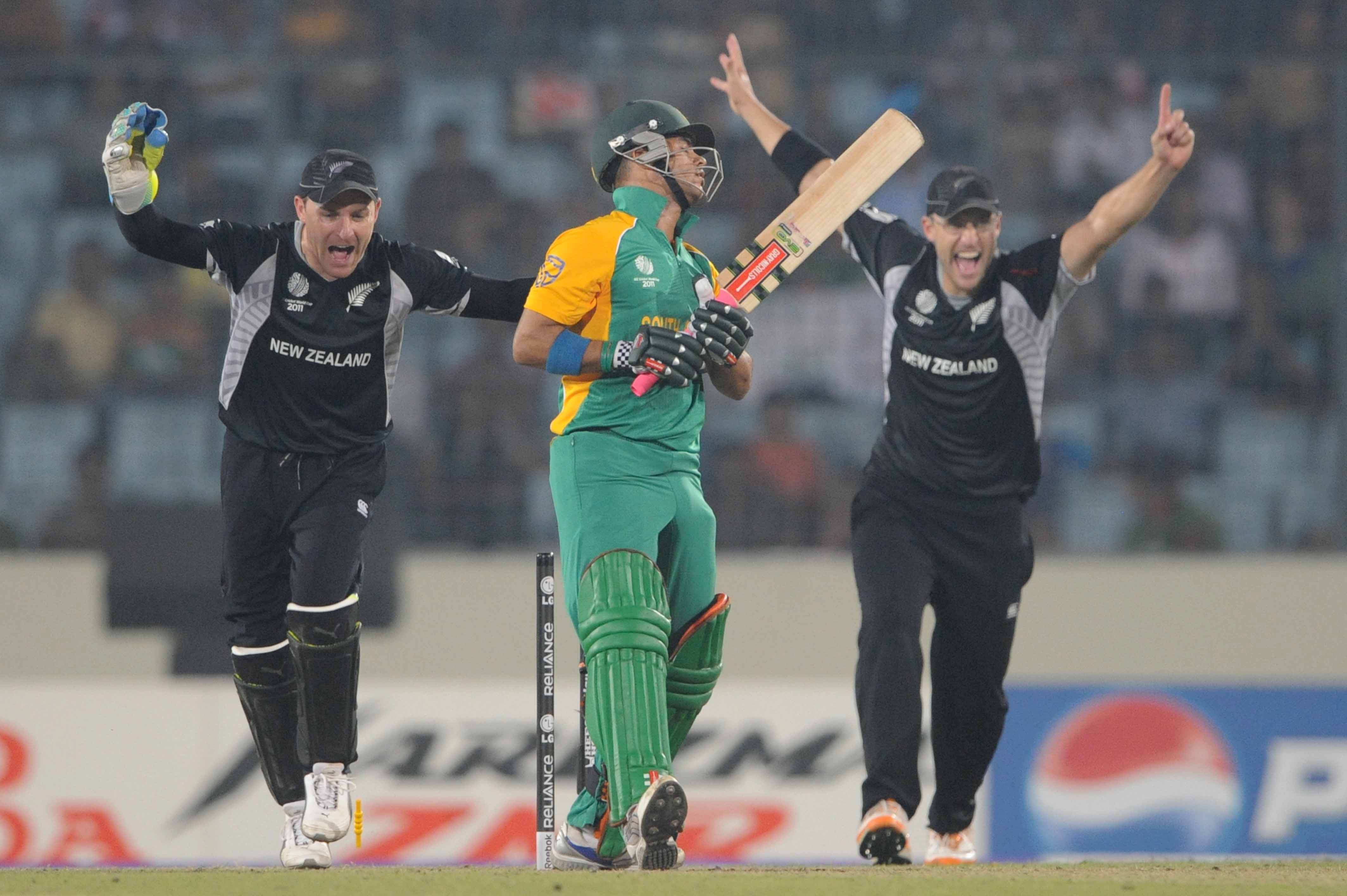 Imran Tahir of South Africa shows his dejection following the 2015 Cricket World Cup Semi Final match between New Zealand and South Africa at Eden Park on 24 March, 2015 in Auckland, New Zealand. (Photo: Phil Walter/Getty Images)
Imran Tahir of South Africa shows his dejection following the 2015 Cricket World Cup Semi Final match between New Zealand and South Africa at Eden Park on 24 March, 2015 in Auckland, New Zealand. (Photo: Phil Walter/Getty Images) 